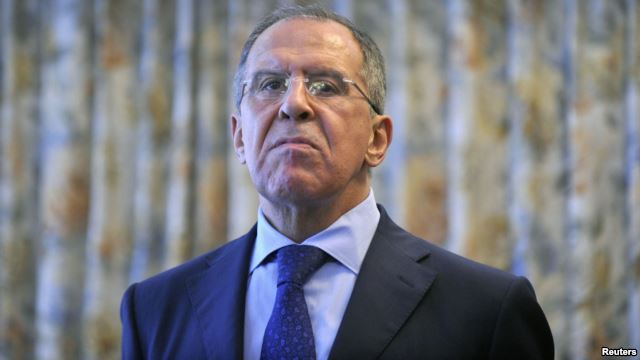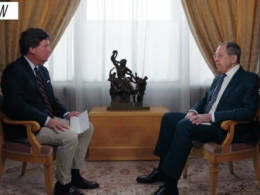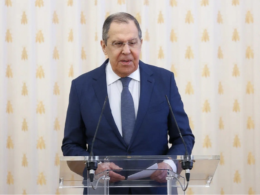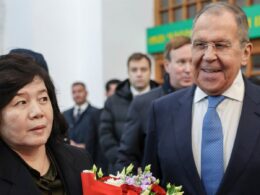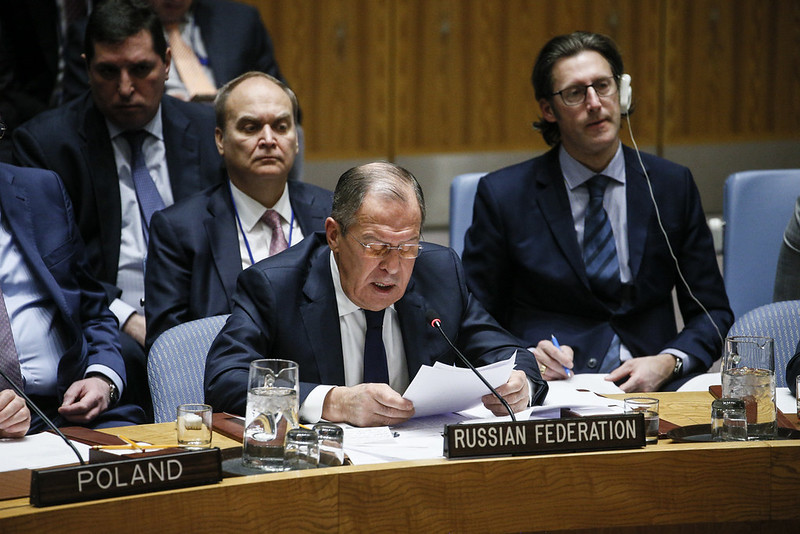Russian Foreign Minister Sergey Lavrov established clear prerequisites for potential peace negotiations with Ukraine, according to an interview published in the Brazilian newspaper O Globo.
This comes as the US is trying to mediate a peace between Ukraine and Russia, however both sides do not agree to each other's proposals and demands, with the US officials issuing warnings that they will abandon peace efforts if no progress is achieved soon.
After Trump's representative Steve Witkoff met Putin in Saint Petersburg, the Trump administration proposed a peace plan to Ukraine, which included recognizing Crimea as Russian and ceding four occupied regions to Russia as a way to reach peace.
Earlier, the Institute for the Study of War (ISW) asserted that no meaningful peace is possible under Putin’s maximalist conditions that remain unchanged since 2022.
Lavrov reiterated Russia's demands for peace negotiations with Ukraine:
- Ukraine must commit to not joining NATO
- Ukraine must confirm neutral and non-bloc status
- Ukraine must address "neo-Nazi regime in Kyiv" formed after the "coup in February 2014," particularly regarding policies affecting Russian language, media, and culture
- International recognition of Russian control over Crimea, Sevastopol, Donetsk, Luhansk, Kherson, and Zaporizhzhia oblasts
- Legally binding agreements with enforcement mechanisms
- "Demilitarization and denazification" of Ukraine
- Lifting of sanctions against Russia
- Return of frozen Russian assets
An overwhelming majority of Ukrainians (84%) reject key Russian demands, including territorial concessions in occupied oblasts and lifting Western sanctions, with 58% opposing Ukraine’s constitutional neutrality. However, the poll excludes frontline troops’ views, limiting its scope to civilian perspectives.
President Volodymyr Zelenskyy and Ukrainian officials also made it clear that the are open to negotiations, but only if they do not entail the recognition of Russian annexations, including Crimea, or undermine Ukraine’s sovereignty.
Zelenskyy argued that Russia is using ceasefire proposals as a stalling tactic to regroup and prepare for new offensives, rather than as a genuine step toward peace. He insisted that a real signal from Russia would be a “complete unconditional ceasefire" and respect for Ukraine’s territorial integrity. Zelenskyy cited resumed Russian offensives after Easter and heavy battlefield losses as evidence of Moscow’s strategy to prolong the war.
Regarding Western involvement, Lavrov criticized the European Union for its "comprehensive support for the Kyiv regime," suggesting Brussels prioritizes saving its "tarnished reputation" over achieving peace. He expressed concern about potential NATO military deployments to Ukraine and continued weapons supplies.
Russian Foreign Minister claims Kyiv abandoned negotiations in April 2022 "at the demand of its Western handlers" and points to President Volodymyr Zelenskyy's September 2022 legislative ban on talks with Russia as a continuing obstacle.
In October 2022, Zelenskyy formalized a legal prohibition on negotiations with Russia through a National Security and Defense Council (NSDC) decision in response to Russia’s September 2022 illegal annexation of four Ukrainian oblasts.
"For their [peace talks] resumption, this ban would need to be canceled," Lavrov told O Globo.
Lavrov also noted a potentially "optimistic" contrast between the previous and current US administrations. According to the minister, President Donald Trump "has repeatedly stated that if the previous administration had not been 'dragging' Ukraine into NATO, there would have been no conflict."
Russia uses a narrative of "NATO expansion" as a tool of propaganda to justify its full-scale invasion of Ukraine. However, Ukraine is not a NATO member and Western leaders just recently ruled out Ukraine’s membership in NATO in the nearest future, despite providing military aid and trainings for Ukrainian soldiers amid the war.
Lavrov confirmed ongoing dialogue between Moscow and Washington on finding settlement paths, expressing hope for "mutually acceptable results."
Since the peace negotiations have begun, Trump only held phone calls with Putin without meeting him in person, while he recently talked to Ukrainian President at St. Peter’s Basilica during Pope Francis’s funeral in Vatican.
Trump described his recent 15-minute meeting with Zelenskyy as "productive" and "beautiful," during which Zelenskyy reiterated requests for additional weapons. Trump expressed uncertainty about Putin’s intentions, stating the coming days could clarify whether Russia is serious about ending the war.
Read also
-
Ukraine’s statehood, not just territory, at stake as London peace talks collapse over Crimea’s recognition as Russian
-
ISW: Russia resists territorial compromises in future peace talks
-
Fox News: Trump believes Russia is stalling peace talks, considering new sanctions
-
Finnish president Stubb calls for Europe to establish its own negotiation team and envoy for Ukraine’s peace talks
-
Trump once again urges Putin to “stop shooting” and make deal

